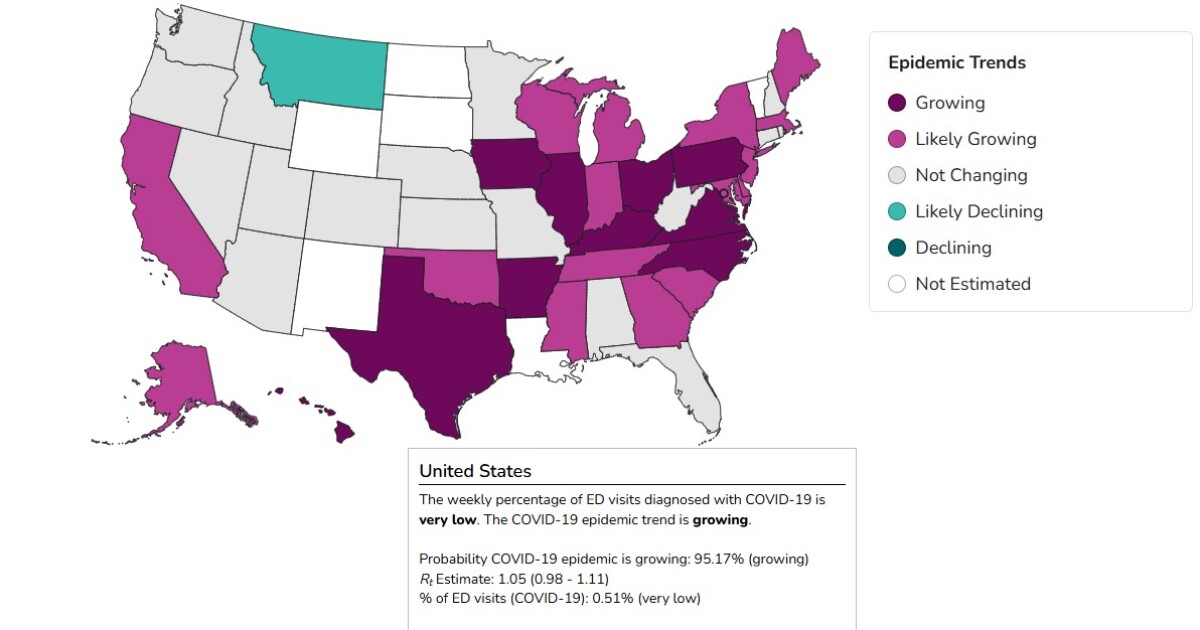COVID-19 Resurgence: New Variants Impacting 25+ States This Summer
- Better American Media

- Jul 22
- 2 min read

Recent trends indicate a resurgence of COVID-19 across the United States, affecting over 25 states including Michigan. This increase has been documented in a report published by the U.S. Centers for Disease Control and Prevention (CDC).
Dr. Albert Ko, a professor at the Yale School of Public Health, highlights that the COVID-19 virus typically follows a seasonal pattern, presenting waves of infection during both the winter and summer months. The current surge in summer cases may be linked to higher travel rates and increased indoor gatherings where air conditioning is prevalent, allowing new variants of the virus to circulate more freely.
Current Variants of Concern
Among the variants circulating, two significant strains have emerged: Nimbus and Stratus. The Nimbus variant, known scientifically as NB.1.8.1, now represents approximately 43% of all COVID-19 cases in the U.S. Dr. Ko notes that this variant has improved binding properties to cells in the respiratory system.
The Stratus variant, designated XFG, is a combination of previous strains and possesses the ability to evade some immune responses. Dr. Adam Lauring from the University of Michigan elaborates on this phenomenon, stating, “New variants are always going to happen, the virus is always evolving, and it’s often evolving to escape our defense systems.”
Both Dr. Ko and Dr. Lauring indicate that while these variants might be better at evading immunity, there is no evidence suggesting they lead to more severe illness compared to former strains. Nonetheless, vulnerable populations, such as the elderly and those with weakened immune systems, remain at greater risk.
To maintain immunity, Dr. Lauring recommends that the general public receive annual vaccinations, while individuals at higher risk should consider biannual doses.
Health Recommendations and Surveillance
The CDC continues to emphasize the importance of staying current with vaccinations as the primary method for protecting against COVID-19. In addition to vaccination, it is advisable to get tested if symptoms emerge or if there has been an exposure to the virus. Individuals are also encouraged to isolate when necessary and to wear masks in specific settings. These guidelines are regularly assessed for their relevance based on the evolving situation.
Dr. Lauring detailed how cases are monitored through various approaches, such as data from state health departments and healthcare systems. In Michigan, a wastewater surveillance system is employed by the CDC to track virus transmission and variant presence within communities.
Although Michigan's case numbers have not shown a significant uptick so far, Dr. Ko warns that increases are likely, as the spread of infections generally moves from southern and southwestern states to northern regions.
Individuals should remain vigilant for common symptoms of COVID-19 which include a sore throat, fever, cough, headache, shortness of breath, and changes in taste or smell.

